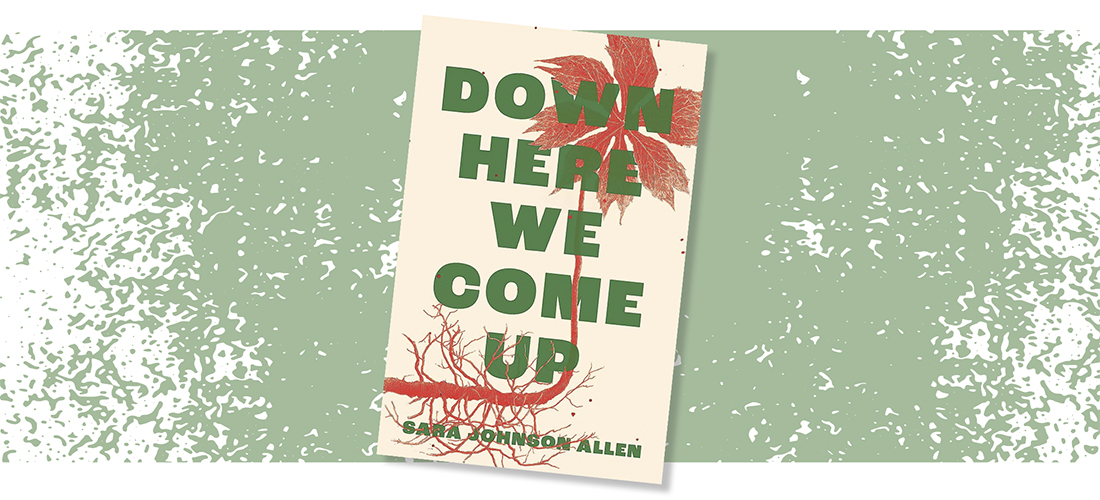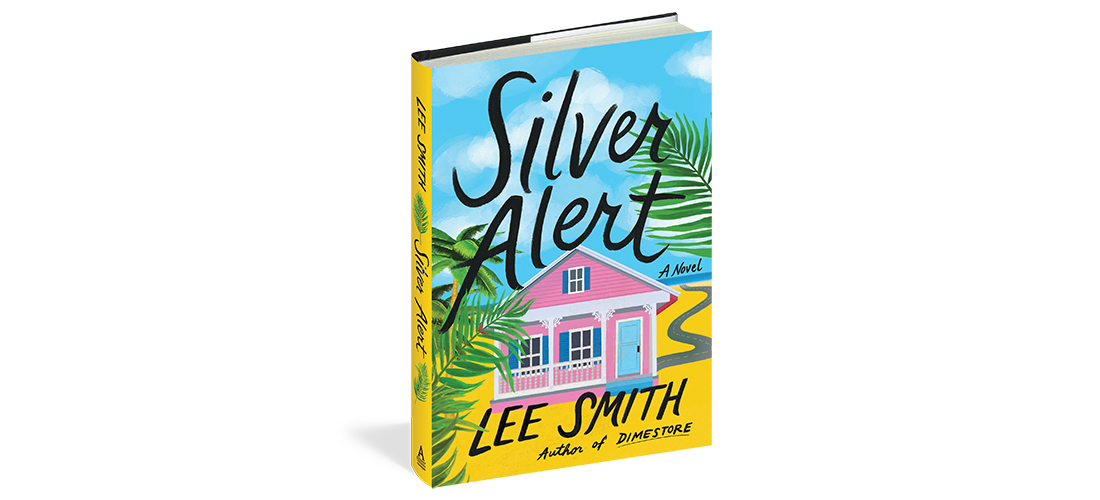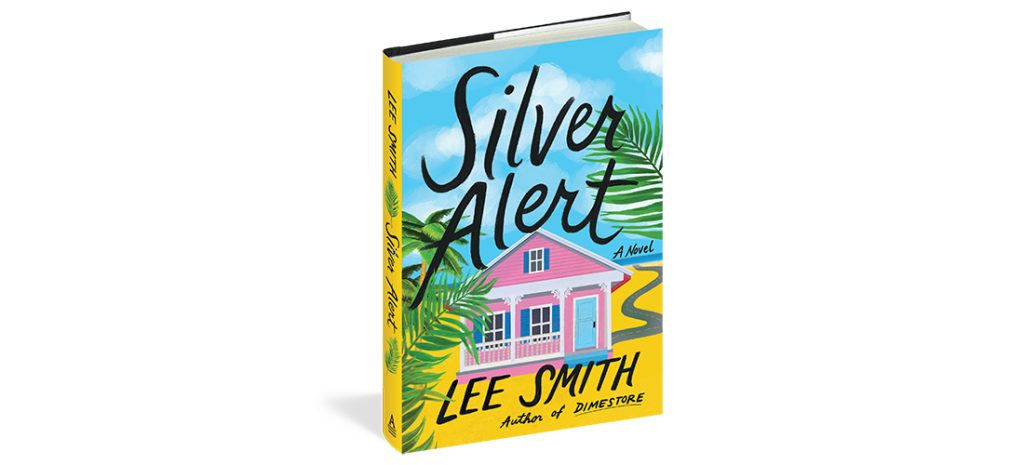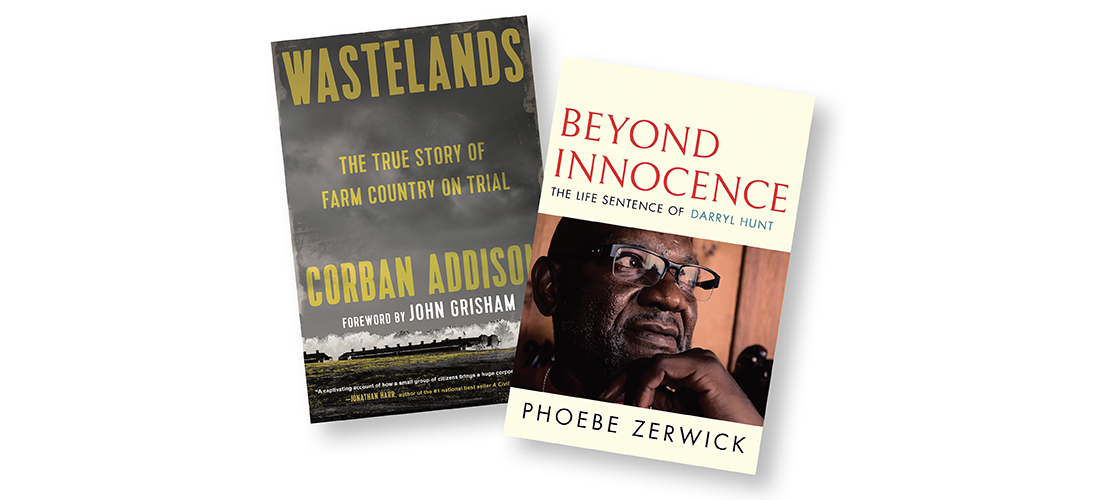The Omnivorous Reader
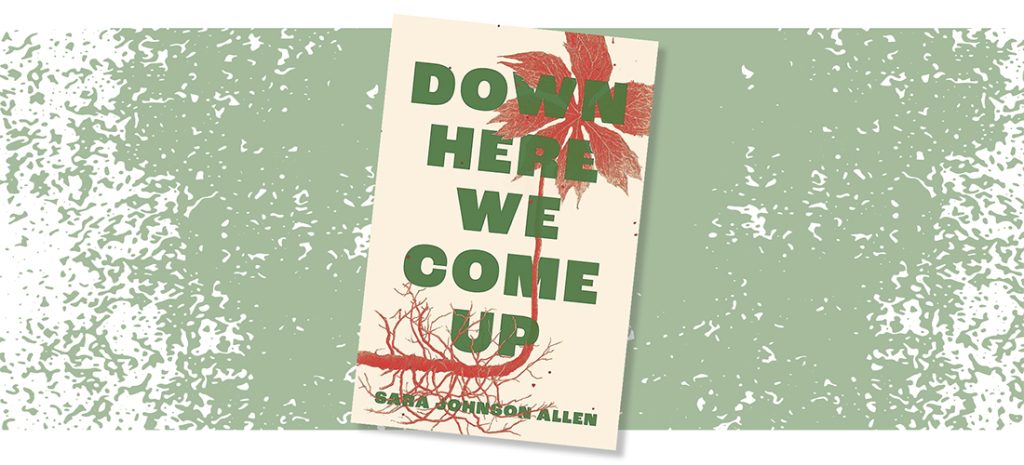
Heavy Mettle
Three mothers of tenacity appear in a debut novel
By Anne Blythe
Mother’s Day has come and gone this year, but Sara Johnson Allen’s Down Here We Come Up offers a unique and complicated tribute to the grit of motherhood, not the roses and candy of a Hallmark holiday. This debut novel from a writer with Raleigh roots shows the depths to which three mothers will go for their children despite the blunders and foibles that accompany the rough-and-tumble lives that bring them all together under one roof in a “creaking, rotting bungalow” outside Wilmington.
In rich, vivid, sparkling prose, Allen’s page-turner explores tough topics: socioeconomic divides; the realities of immigration often skirted in today’s hot-button debate; the shadow economies of the illegal drug trade, and human and weapons trafficking.
Kate Jessup is the protagonist. She’s in her mid-20s, “movie-star beautiful,” and the wistful mother of a daughter whose soft skin she could still smell even after spending only 48 hours with her before handing the newborn over to a Boston couple in a “closed adoption.”
Kate’s a twin who is almost as street smart as her brother, Luke, is book smart. They’re the children of a sassy single mother, Jackie Jessup, who showed her twins how to live by hook or crook as they grew up near Wilmington. They learned early in life that “there was a thing’s market value, the perceived value, the true value, the if-the-buyer-was-drunk value.”
Jackie, readers find out pretty quickly, “could con people into anything because she saw ahead of everyone else by several moves,” Allen writes. “In a different set of circumstances, Jackie might have been a great chess player, someone who could beat the fast strategies of the men playing outside the Au Bon Pain in Harvard Square where Kate later followed her twin brother Luke when he received enough merit and need-based scholarships plus loan money that it didn’t matter he had no actual money.”
Settled near Harvard Square with her professor-boyfriend in a multi-million-dollar Victorian home he’d purchased from his father for a dollar, Kate gets a call from Jackie that shakes her out of the aristocratic world she had joined.
“Mama, I’m at work. What do you want?” Kate asked while ducking down between the rows of plants she loved to tend in the greenhouse where she worked.
“ . . . Look, I need something,” Jackie said between drags on a Kool 100.
Jackie wanted Kate to “get someone’s children,” and to entice her daughter, she added: “I have something you want.” Kate had been emotionally hollow when she left the South and her mother to be near her brother in New England. Most of all, she wanted to know where the daughter she’d given up for adoption was. Though she tried to tamp down those questions, they were never far from the surface.
Against her brother’s advice, she had even gone to the home where she thought the adoptive parents lived, just to get a glimpse of the life she had brought into the world. But there was no sign of the couple or a little girl who would, by then, be close to 8 years old.
Jackie’s phone call, and the chance that her mother might truly know where her daughter was, leads Kate back to the house where she grew up. She leaves Boston, taking her boyfriend’s Audi without his permission or even telling him she was going. Memories of a life she thought she had left behind flooded back.
“She knew driving south would be like letting poison seep into the well,” Allen writes. “She could taste it, bitter and sharp on the sides of her tongue, the menthol smoke, the chemical air freshener, a variety of aftershaves of strangers in their house, all of it.”
Once home, Kate found her mother deathly ill, “a skeletal, yellow-grey version of herself.” The bungalow was filled with people she didn’t know, travelers from south of the U.S. border who were there because of Maribel Reyes, a former teacher and mother of three who fled Mexico to build a better life for her family.
Maribel had moved into the Jessup home, taking on a daughter-like caregiver role for Jackie. More than that, she had created a safe house for migrant workers who made stops in southeastern North Carolina as they carved new paths in a foreign and sometimes unwelcoming land.
Maribel, Kate and Jessie may have converged in this place from different circumstances for an array of reasons but they shared a powerful bond. They were mothers who knew too well the pangs of being separated from their children. Each was willing to go to great lengths to narrow that distance, often bending the rules to achieve that greater purpose.
As the women plot the trip to get Maribel’s children out of Mexico and across the Bridge of the Americas from Cuidad Juarez into El Paso, Texas, Allen shows her deftness at describing places. You can almost feel the hot weather of the inner coastal communities. “Kate knew heat,” Allen writes. “She knew it up and down like the motion of a paper fan in a closed-window church. Blot-a-cloth-against-your-sweaty-forehead heat. Waving-up-from-the-asphalt-like-a-mirage heat. Wet heat.”
You can visualize what the coastal community looked like before the new housing developments cropped up on old farmland and forever altered the landscape. The sounds and smells of the changes hang heavily in the air — new languages among the rural Southern accents, the chilaquiles and memelas served in kitchens where biscuits once were the main fare.
Amid all the calculating, heartbreaking and serpentine storylines of survival are moments of triumph, jubilation and humor. Allen has her readers cheering for her characters, rallying for them to forgive themselves and others and longing for new beginnings.
“Follow anything back to the beginning, and you will find a mother,” Jackie says at one point.
From start to finish, Allen will make her readers think about motherhood, how to define it, and the joys, messiness and sacrifices that come with the job.
Author Alena Dillon describes Allen’s first novel as “a literary mic drop.” Let’s hope it’s not the end of a performance, but the first of more stories to come. She’s off to a great start. PS
Anne Blythe has been a reporter in North Carolina for more than three decades covering city halls, higher education, the courts, crime, hurricanes, ice storms, droughts, floods, college sports, health care and many wonderful characters who make this state such an interesting place.

